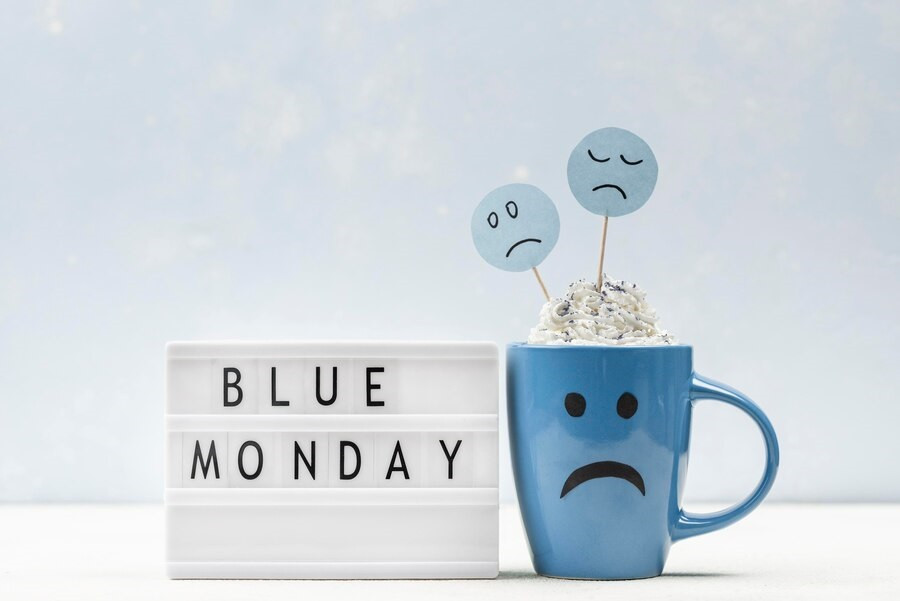The phenomenon of "I hate Monday" is known as the Monday blues. This term is used to describe the negative and sad feelings that occur at the beginning of the working week, especially on Mondays. This phenomenon is common to many people although it is not a diagnosable medical condition and is not listed in the DSM-5.
However, research on the Monday blues has been conducted. A study conducted in 2020 examined workers related to this. The results showed that employees experienced lower job satisfaction and higher levels of work stress on Mondays. Why does this phenomenon happen?
Causes of Monday Blues
The Monday blues phenomenon itself can occur due to various factors and causes, such as:
Dissatisfaction and burnout
Dissatisfaction and burnout at work can cause the Monday blues and other negative feelings related to work. Job dissatisfaction or burnout can be caused by many factors such as excessive work pressure, overwork, workplace conflict, or feeling unappreciated. These can affect one's mood when Monday comes around.
Monday blues are also more commonly associated with people who have a 5-day work week and 2 days off on Saturday and Sunday.
Burnout can develop over time and affect both physical and mental well-being. The Monday blues indicate that you may be under a lot of pressure and experience burnout, negative feelings, and dissatisfaction.
Cognitive distortions
Cognitive distortions refer to excessive negative thinking patterns, which can affect one's perspective and play a role in the occurrence of the Monday blues. For example, if one thinks that there will be a lot of work to do next week, then feelings of stress and dissatisfaction at the beginning of the week will increase.
In addition, over-generalizing thoughts, assuming the worst about a situation, and a "black-and-white" and compartmentalized mindset can make you immediately assume the worst about the coming Monday. These bad thoughts can make you experience the Monday blues.
Read More: Long Working Hours and Poor Air Quality: Causes of Cardiovascular Disease
Unhealthy weekend habits
Because the week is usually busy, many people spend their weekends in unhealthy ways, such as staying up late and watching movie marathons, consuming alcoholic beverages, lazing around all day, or spending a lot of time playing games throughout the night.
These negative habits can affect your productivity at the beginning of the week, leaving you feeling exhausted before you start your day. For this reason, you need to ensure that you have a consistent sleep routine including before Monday comes, stay away from alcohol or other substances, and plan your weekend with positive and fun activities.
The Monday blues is not a medical condition that requires specific treatment. However, if you feel that it is affecting your productivity and the quality of your work, then you need to seek help from a doctor, psychologist, or psychiatrist. They may recommend therapies that can help you overcome your anxiety and fear of Mondays.
You can either visit a doctor or make use of the consultation features that are available in the Ai Care application by downloading the Ai Care application from the App Store or Play Store.
Looking for more tips and tricks for health, first aid, and other home remedies? Click Here!
- dr Hanifa Rahma
Emma Dibdin (2022). Monday Blues: Is It a Real Thing?. Available from: https://psychcentral.com/depression/monday-blues
Jessica Caporuscio, PharmD (2023). What to know about the Monday blues. Available from: https://www.medicalnewstoday.com/articles/monday-blues
Cindy Lamothe (2019). How to Beat the (Very Real) Monday Blues. Available from: https://www.healthline.com/health/monday-blues
Mayo Clinic (2021). Job burnout: How to spot it and take action. Available from: https://www.mayoclinic.org/healthy-lifestyle/adult-health/in-depth/burnout/art-20046642
Peter Grinspoon, MD (2022). How to recognize and tame your cognitive distortions. Available from: https://www.health.harvard.edu/blog/how-to-recognize-and-tame-your-cognitive-distortions-202205042738











